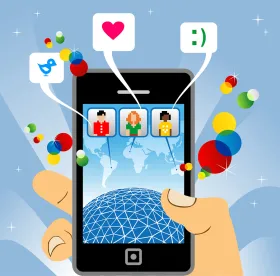It’s a typical marketing story: Not too long ago, manufacturers marketed coconut oil as a heat-tolerant alternative to other cooking oils. They further promoted it by noting that it was more sustainably harvested than palm oil and could replace butter for people avoiding dairy.
But then coconut oil marketing took a turn. People—not the manufacturers but social media influencers—started to talk about coconut oil in a different way. Influencers claimed that coconut oil was a “miracle cure” for a variety of health and other problems.
 Then the influencers’ claims were challenged. In August 2018, Harvard public health professor Karin Michels called coconut oil “pure poison.” Professor Michels blamed the oil for raising levels of LDL cholesterol and increasing the risk of heart disease.
Then the influencers’ claims were challenged. In August 2018, Harvard public health professor Karin Michels called coconut oil “pure poison.” Professor Michels blamed the oil for raising levels of LDL cholesterol and increasing the risk of heart disease.
This situation raises an important question: How can manufacturers work with social media influencers to enjoy the benefits of viral promotion while maintaining control of messaging and avoiding the consequences of influencers going rogue?
Going Viral Through Virtual Influencers
Social media influencers use their perceived authority to convince followers to buy the products they endorse. Some influencers partner with manufacturers, which pay them to market a product. In 2017, 12.9 million posts on Instagram were brand-sponsored.
Other influencers, however, make unsolicited claims about products, many of which the company doesn’t approve. Their followers may overlook this fact and buy the product because they trust the influencer as they would a friend. In fact, 92 percent of consumers use products recommended by people they know – or feel that they know through social media.
What can manufacturers do to leverage the social media explosion but still control product marketing? First, they can establish partnerships with influencers, who then promote the product as the manufacturer intends in exchange for a “#sponsored” hashtag. Data show that consumers see sponsored posts as more like typical user content than like marketing. That makes the posts more effective than traditional advertisements.
Some manufacturers have also chosen to use “brand ambassadors,” recruiting some of the first fans of a new product to grow both the brand’s and the promoter’s social presence organically – and on the manufacturer’s terms. Brand ambassador jobs have cropped up on job search engines, and sometimes the brand’s websites will include links encouraging people who already love the products to apply.
When Influencers Go Rogue
Where influencers “go rogue” and promote a manufacturer’s products on their own terms, their messaging may morph into “miracle cure” claims that do not reflect the manufacturer’s claims. The small blue check mark by influencers’ usernames denotes them as “verified” public figures, which means that an account is the authentic presence of the public figure, celebrity, or brand it purports to represent. Followers of verified accounts may treat this advice with as much weight as a medical doctor’s signature on a prescription. Manufacturers are left picking up the pieces of a problem they did not create.
But manufacturers can offset potential challenges of influencer-led advertising, even without working directly with influencers. First, manufacturers can proactively include disclaimers – in the form of warning labels or in advertisements – addressing known potential risks of use or misuse of a product. Social media influencers have recently hailed activated charcoal, for example, for its toxin-removing qualities if ingested. Partly because of the media attention, activated charcoal has moved from poison control wards into juice shops as a “detox” drink. But since activated charcoal’s absorptive qualities may counteract the effects of certain prescription medications, some manufacturers may consider warning people taking birth control pills or antidepressants to consult with a doctor before using it.
Second, manufacturers can partner with influencers who have already promoted their products to continue reaching the influencers’ audience while modulating the messaging. Recently, for example, influencers have promoted the use of adaptogens – non-toxic plants used for stress relief – in their morning drink elixirs. Manufacturers had previously been promoting the stress-relieving qualities of adaptogens, but it was not until recently that these messages started cropping up on social media pages – which made the product turn up in more stores and cafes. By partnering with influencers who have already promoted adaptogens, manufacturers can help shape their messaging and avoid the risk that influencers will tout products as something they are not.
Manufacturers can help dispel myths by engaging with their consumers – especially social media influencers – who talk about them. Manufacturers involved in messaging at the ground level have a much better chance of stopping unrealistic claims before they spread. By working with customers to share proper use and benefits of their products, manufacturers can manage expectations and keep their consumer base happy.



 />i
/>i
